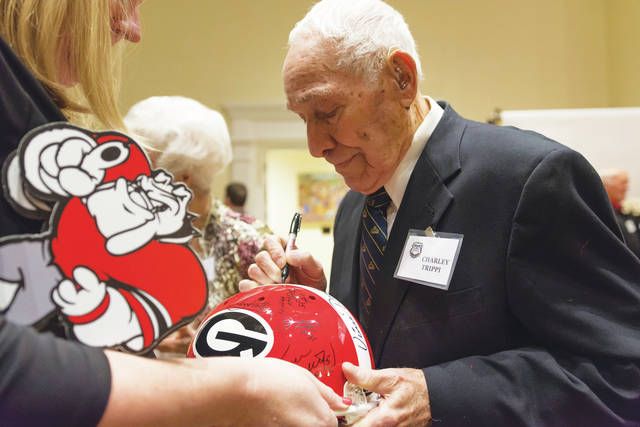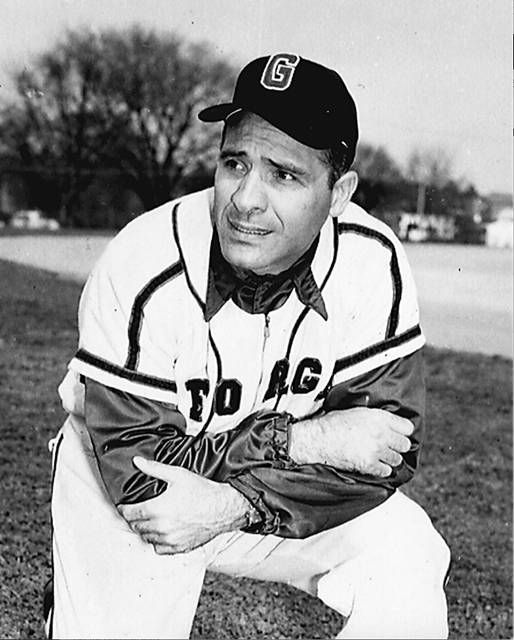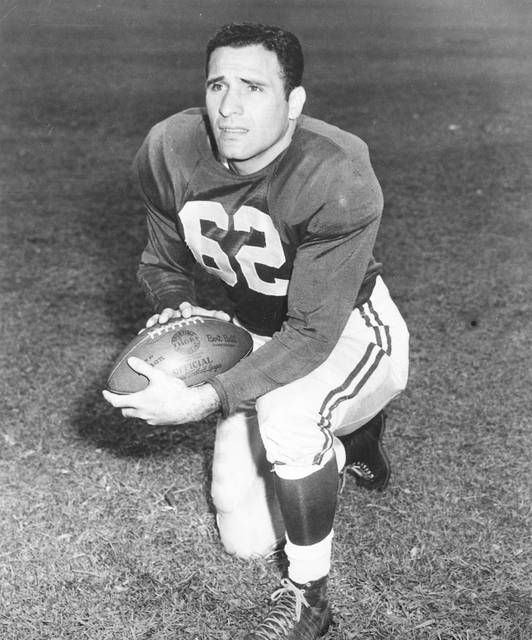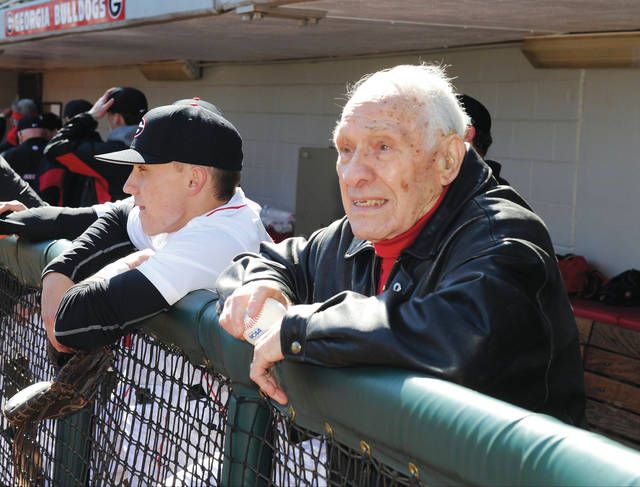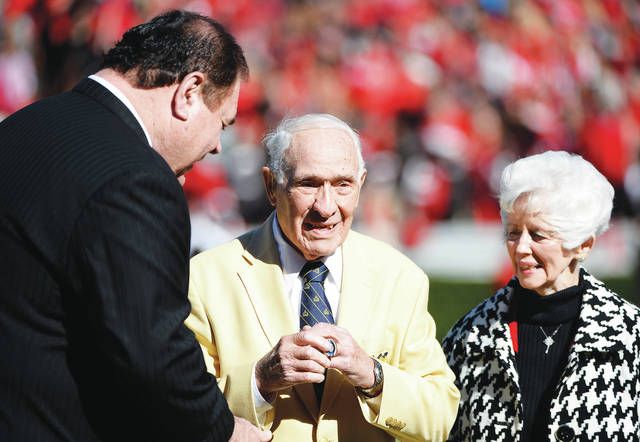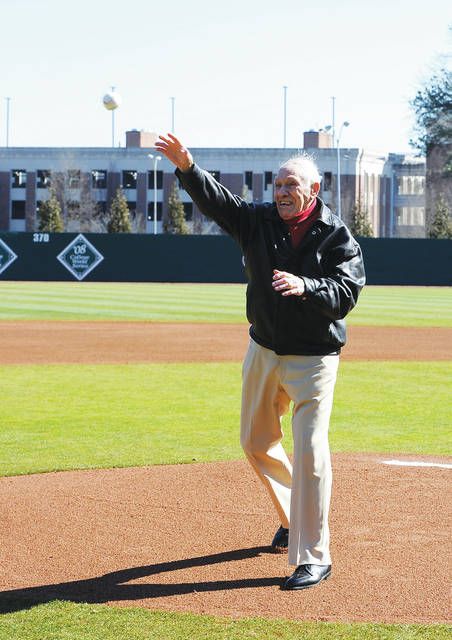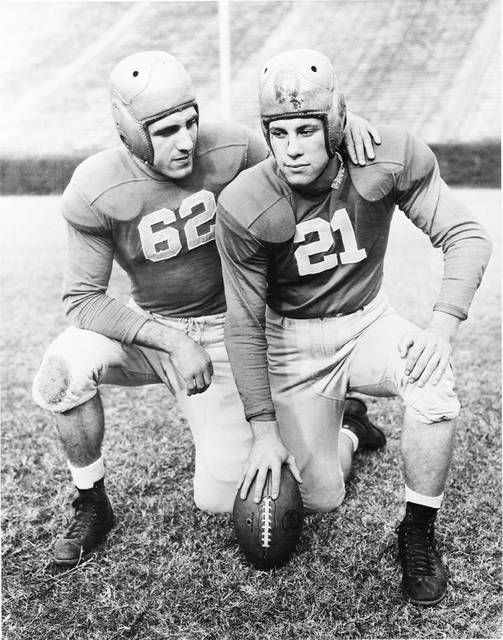Click here to subscribe today or Login.
When Georgia takes on Oklahoma on New Year’s Day in the Rose Bowl and NCAA semifinal game, the interested observers will include Charley Trippi from his home in Athens, Ga.
It has been exactly 75 years since Georgia made its only previous Rose Bowl appearance with Trippi earning the Helms Award as the Most Outstanding Player in a 9-0 win over UCLA on New Year’s Day 1943, making Georgia the national champion for the 1942 season.
“It was quite an event,” the 96-year-old Trippi said in a telephone interview Friday. “It was something that I dreamed about playing in for years and then, here I am, in the Rose Bowl.
“It’s a great scene to be a participant in a Rose Bowl game.”
Trippi, who made his way to Georgia after being an outstanding athlete at Pittston High School, made the most of the opportunity with the first of three standout bowl performances.
It was a different era and style of play when Georgia dominated the game with a 24-5 advantage in first downs, but was still battling in a scoreless tie until the fourth quarter.
With Heisman Trophy winner Frankie Sinkwich limited by two sprained ankles, Trippi, a sophomore — wearing number 62 while playing halfback and quarterback in the single wing offense — took on an increased workload and kept the Bulldogs in control. He carried 27 times for 115 yards and passed for 96 more.
Following a safety off a blocked punt, a Trippi run to the 1 set up the game’s only touchdown by Sinkwich.
Trippi, who was considered undersized by some eastern and northern recruiters who were less interested in him during his Pittston days, headed south to get started on a career full of major college and professional accomplishments, including induction into the Pro Football Hall of Fame in Canton, Ohio.
“That was a great event,” Trippi said. “I think everybody who plays the game would like to be in the Rose Bowl and Hall of Fame.”
At the time Trippi led the second-ranked Bulldogs over the top-ranked Bruins for the national title, he was beginning to find a new home. He never left Georgia and, after his professional career, it was Athens where Trippi bought the home he has lived in since 1960, allowing him to closely follow his alma mater.
Nearly eight decades removed from living in Pittston – “I left Pittston right after I graduated” – Trippi’s memories of his original home are fading and he has lost the close friends he had in the region through the years. He does take pride in knowing, however, that the Pittston Area Patriots play their high school football games on the school’s campus in Yatesville at a stadium that bears Trippi’s name.
“I enjoy that,” he said.
College bowl games have changed through the decades, growing in numbers and format, allowing Georgia to return to the Rose Bowl, something that was impossible when the game was strictly Big Ten champion vs. Pac-8, Pac-10 or Pac-12 champion.
Trippi is not one to complain about the proliferation of bowl games. He says he is an “avid watcher” during the bowl season.
Bowl season – and New Year’s Day in particular – has been a special time to Trippi since his playing days.
The first trip took three days to cross the country by train and with attention on World War II, few fans made their way from Georgia to California.
After missing the next two college seasons while he served in the war, Trippi played the 1946 Oil Bowl, leading Georgia to a 20-6 win over Tulsa. He threw a 64-yard touchdown pass to John Donaldson and scored on a spectacular 68-yard punt return in which he reversed field, then ran over potential tacklers along the sideline.
Trippi made it 3-for-3 in bowl bames when he played every snap – offense, defense and special teams – in a 20-10 victory over North Carolina in the Sugar Bowl. The win completed a perfect season for Georgia and Trippi’s college career, paving the way for him to play 100 games over the next nine seasons with the National Football League’s Chicago Cardinals.
While showing off the versatility he was known for, Trippi threw a 67-yard touchdown pass to Dan Edwards in the third quarter to put Georgia ahead to stay.
The college portion of his career was over, but Trippi remained a legend through the years in and around Athens.
Trippi stayed in the spotlight and his viewing of the Bulldogs was often done in person up until the 2017 season when some health issues altered that routine.
“Before this year, we had gone to every game for years,” Trippi’s wife, Peggy, said. “We’d go three hours early so he could do meet-and-greets and the athletic director arranged for him to sit in one of the boxes.”
Though hearing issues provided some limitations in a telephone interview, Trippi is generally doing well. The last living member of the 1942 Rose Bowl champions enjoyed the attention and interviews in the local Georgia media as stories of a game 75 years ago have been shared in the days leading up to the Bulldogs’ return to Pasadena.
